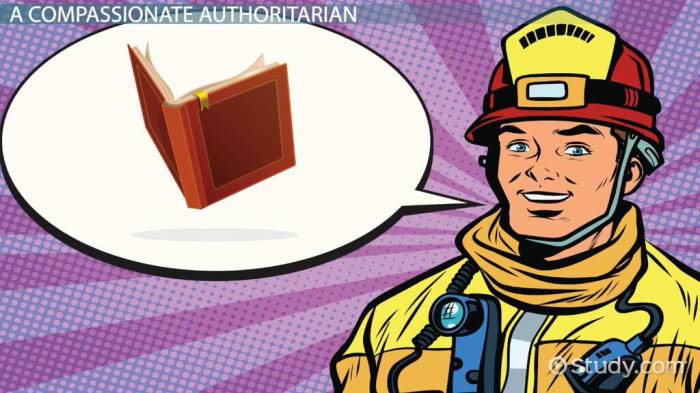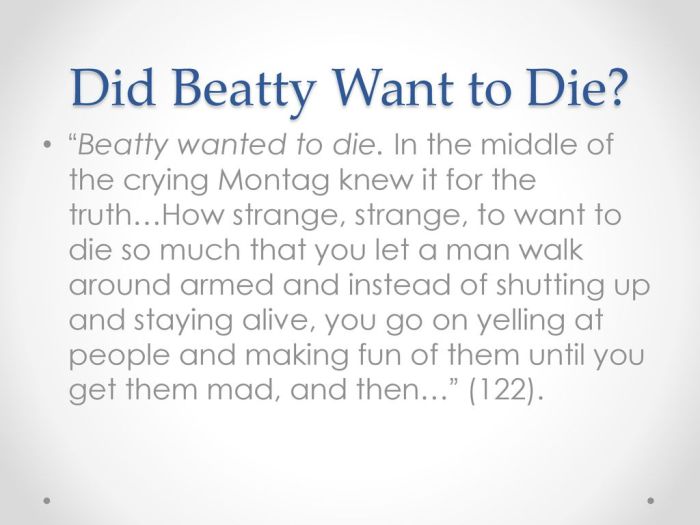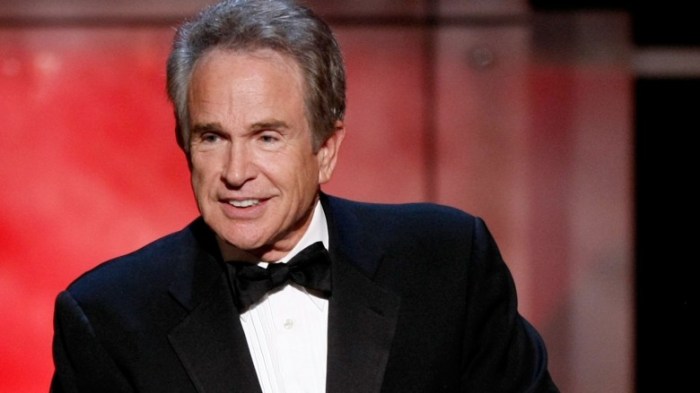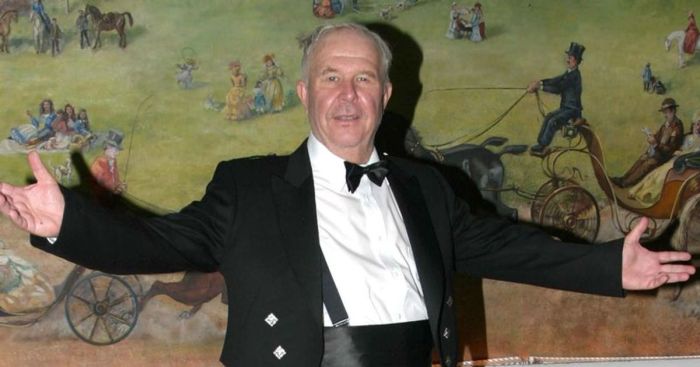Why did beatty wanted to die – Why did Beatty want to die? This question delves into the complex motivations of a character who embodies the oppressive forces of “Fahrenheit 451.” Join us as we explore the depths of Beatty’s despair and the factors that drove him to seek the ultimate escape.
In Ray Bradbury’s dystopian masterpiece, Beatty serves as the fire captain, a symbol of conformity and censorship. Yet, beneath his authoritarian facade lies a tormented soul, wrestling with existential doubts and a profound sense of emptiness.
Beatty’s Desperation and Hopelessness

Beatty’s despair and hopelessness stem from a profound loss of faith in the world and its values. The oppressive and superficial society in which he lives has extinguished any sense of purpose or meaning in his life.
Factors Contributing to His Hopelessness
- Lack of Intellectual Stimulation:Beatty’s mind is stifled by the mindless conformity and censorship enforced by the society. His thirst for knowledge and genuine conversation is met with resistance and disdain.
- Emptiness of Relationships:Beatty’s relationships are shallow and unfulfilling. He lacks meaningful connections and genuine emotional support, leaving him feeling isolated and alone.
- Loss of Purpose:As a fireman, Beatty’s role is to enforce conformity and burn books, symbols of free thought and imagination. This meaningless task has stripped him of any sense of purpose or accomplishment.
The Burdens of Conformity and Societal Pressure

In the oppressive society of “Fahrenheit 451,” individuality and creativity were stifled by the iron grip of conformity. The relentless pressure to adhere to societal norms weighed heavily on every citizen, including Beatty, the fire captain.
Beatty’s Internalized Societal Norms
Beatty had internalized these societal norms, becoming a staunch advocate for the status quo. He believed in the importance of maintaining order and stability, even at the cost of suppressing independent thought and artistic expression.
The Pressure to Conform
The pressure to conform was relentless, and Beatty felt it acutely. He was expected to uphold the values of the society, even if he secretly questioned them. This constant pressure took a toll on his mental and emotional well-being.
Contribution to His Decision
The pressure to conform and maintain the status quo played a significant role in Beatty’s decision to end his life. He felt trapped and hopeless, unable to reconcile his inner doubts with the demands of society. In his despair, he saw death as the only way to escape the suffocating weight of conformity.
The Role of Fire and Destruction

Fire holds a profound significance in the novel, symbolizing both destruction and renewal. It is through fire that books, the repositories of knowledge and ideas, are destroyed, leaving a void in society. However, fire also represents the potential for rebirth and transformation, as it clears the way for new ideas to emerge.
Beatty’s Fascination with Fire
Beatty’s fascination with fire reflects his inner turmoil and his desire for both destruction and escape. As the fire chief, he wields the power to destroy knowledge, but he is also consumed by a longing for the very thing he destroys.
Beatty’s desire for death stemmed from his disillusionment with a society that stifled creativity and individuality. Ironically, his own creative spirit yearned for the freedom and expressiveness of a flat major scale clarinet . In this instrument, he found solace and a means to escape the confines of his oppressive reality, fueling his longing for a life beyond the boundaries of his despair.
His obsession with burning books is a manifestation of his inner conflict, as he grapples with the desire to conform to societal norms while also yearning for intellectual freedom.
The Burdens of Conformity and Societal Pressure
Beatty’s obsession with fire also stems from the burdens of conformity and societal pressure. As the leader of the firemen, he is expected to uphold the values of the society, which include the suppression of knowledge and individuality. This pressure weighs heavily on Beatty, leading him to seek solace in the destructive power of fire.
Fire as a Catalyst for Self-Destruction
Beatty’s obsession with burning books ultimately contributes to his self-destruction. By destroying the knowledge that could challenge the status quo, he unwittingly undermines the very society he seeks to protect. His actions create a void that cannot be filled, leading to his own downfall and the collapse of the society he represents.
Beatty’s Relationships and Influences

Beatty’s relationships and influences played a pivotal role in shaping his thoughts and actions, ultimately leading to his decision to end his life.
Montag’s Influence
Montag’s questioning nature and passion for books challenged Beatty’s deeply held beliefs about society and the importance of conformity. Their interactions forced Beatty to confront his own doubts and uncertainties, which gradually eroded his confidence in the system he had sworn to uphold.
Mildred’s Influence
Mildred’s apathy and shallowness epitomized the emptiness of the society they lived in. Her lack of intellectual curiosity and emotional depth made Beatty question the value of living in a world where true connections and meaning were elusive. Her inability to comprehend the significance of books and the ideas they contained further disillusioned him.
Faber and Granger’s Influence, Why did beatty wanted to die
Faber and Granger represented the antithesis of Beatty’s world. Faber’s wisdom and knowledge challenged Beatty’s rigid adherence to societal norms, while Granger’s hope for a future beyond the oppressive regime offered him a glimmer of hope. Their influence helped Beatty recognize the flaws in the society he had blindly defended, and ultimately led him to question his own mortality and the meaning of his existence.
Question & Answer Hub: Why Did Beatty Wanted To Die
What was the primary reason for Beatty’s desperation?
Beatty’s desperation stemmed from a profound sense of hopelessness and a loss of belief in the value of life. He felt trapped within a society that stifled individuality and creativity, leaving him disillusioned and devoid of purpose.
How did societal pressure contribute to Beatty’s decision to end his life?
The oppressive society in “Fahrenheit 451” enforced strict conformity, suppressing dissent and individuality. Beatty, as the fire captain, was a cog in this machine, tasked with enforcing these norms. However, the weight of this role and the realization of his own complicity in suppressing knowledge and creativity became unbearable, driving him towards self-destruction.
